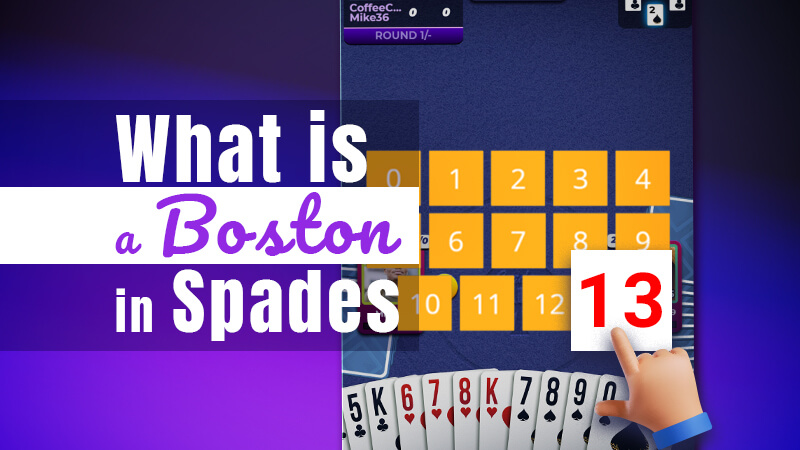1. Spades Boston Bid
When a player bids Boston, it means they are confident that they can win all 13 tricks in the hand. It is an ambitious and challenging bid, as winning all tricks requires strategic play and a strong hand.
Bidding Boston is a high-risk, high-reward strategy. If the player successfully wins all 13 tricks, they receive a significant bonus, depending on the scoring system being used. However, if the player fails to win all the tricks, they suffer a severe penalty, often resulting in a loss of points and possibly the game.
Due to the difficulty of achieving a Boston, it is a rare and bold bid that requires a combination of skill, confidence, and a favorable hand. It adds an extra level of excitement and tension to the game, as players attempt to fulfill or prevent the Boston bid.
2. Boston in Spades Pairs (Teams)
In Spades Pairs, players form teams and work collaboratively to achieve their bidding goals and win the game. The Boston bid in this format carries both rewards and risks for the team involved.
A successful Boston bid requires impeccable teamwork, exceptional card coordination, and a strong belief in each other’s abilities. Players making this bid must assess their hands’ strength, the potential distribution of spades, and their ability to outmaneuver the opponents.
When facing a Boston bid, the opposing team must be vigilant and adapt their strategy accordingly. They need to assess their own hands and determine if they possess the means to block the Boston bid. In the end, securing just a single trick spells victory and brings the game to an abrupt conclusion.
3. Boston in Spades Solo (Individual Play)
In Spades Solo, every player competes independently, making the game more cutthroat and unpredictable. The Boston bid takes on a different dynamic in this format, as each player fights for their own success.
Bidding Boston signifies a player’s belief in having a formidable hand that can win all 13 tricks. This is not a partnership game, so a player must solely rely on the strength of their own cards. It becomes a test of their individual skills.
When a player bids Boston in Spades Solo, it immediately grabs the attention of the other players. They can employ defensive tactics, such as carefully managing their spades or using strategic trump cards, to stop the bidder’s progress. Players may also form temporary alliances to counter the Boston bid.
4. Boston bid vs. Nil bid
Bidding plays a crucial role in determining the outcome of each hand. Two prominent and contrasting bidding strategies are the Boston Bid and the Nil Bid. While both bids involve taking risks, they differ significantly in their objectives.
In essence, the Boston bid and the Nil bid are opposing strategies in terms of their goals and the actions players must undertake during gameplay. The Boston bid focuses on dominance and winning all tricks, while the Nil bid emphasizes evasion and avoiding any tricks. These bids create a captivating dynamic in Spades, offering players contrasting approaches and opportunities to showcase their skills and decision-making abilities.


